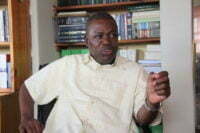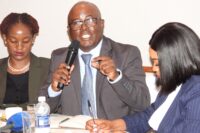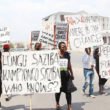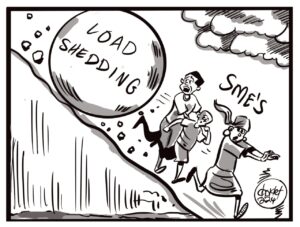Zambia’s High Commissioner to South Africa Emmanuel Mwamba has called for a meeting with Amnesty International to discuss an alert the organization issued on satirical singer Fumba Chama alias Pilato.
And Ambassador Mwamba has written to South Africa’s African Department of International Relations and Corporation, to ensure that vegetables and dairy products for export are well documented in order to prevent the spread of a disease called Listeria.
On Tuesday, Amnesty International issued an alert on Pilato, revealing that the singer fled Zambia on January 5 after receiving threats over his hit song, Koswe Mumpoto.
But in a statement, Wednesday, Ambassador Mwamba stated that the alert issued by Amnesty International was alarming and did not reflect the correct status of Zambia on Human Rights.
“Our country does not have any citizen that has fled into exile on account of threats on their lives because of what they said, wrote or sung about, its alien to us and unheard of,” Ambassador Mwamba stated adding that the Zambian government respected human rights; especially those of its citizens.
“Watch the videos of Opposition leaders and the manner they describe both His Excellency President Edgar Lungu, members of his Cabinet or his government. Has anything happened to them?” he asked.
He stated that open and free discussions that happened on Radio and television stations demonstrated that Zambians were enjoying freedom of expression and reflected government’s respect for freedom of expression and human rights.
He dismissed the allegations that there were threats Pilato’s life describing them as unfounded and not credible.
“It is for this reason that we have called Amnesty International and Mr Fumba Chama for a meeting to discuss their concerns and fears” stated Ambassador Mwamba.
“There is no threat on the life of Pilato from government, from state organs, or from the ruling party. But I am aware and have listened to the so called threats that arose from voice-notes and a video on a social media platform -WhatsApp group. Pilato, many political and civic players are aware of the banter and nature of such discussion and verbal exchanges on social media”.
Mr Mwamba stated that he had seen and watched on social
media similar banter regarding both ruling party and opposition youths exchanging such videos and voice-notes.
“Of course the language is unpalatable and unacceptable but that does not in anyway mean these people will be harmed or kill each other”.
He said that he hoped the meeting with both Pilato and Amnesty International would yield positive results.
“Pilato is free to live in his country of his birth, or if wishes to live in South Africa, he should do so without damaging the reputation, integrity or standing of his own country or government. We had an incidence of party cadres that had a scuffle over land plots that resulted in a loss of life in M’tendere township in Lusaka. Those cadres have been jailed beyond 15 years. President Edgar Lungu has been deeply concerned about the rise of violence in politics that he even set up a Commission to enquire into the causes of violence during elections or political activities. Zambia is a democratic state and it is ideas and thoughts that should reign supreme and not violence.”
He stated that Pilato had previously done songs that many would consider more offensive than Koswe Mumpoto but no harm or discernible threat had come to him.
Meanwhile, Ambassador Mwamba wrote to the South African authorities cautioning him about food exports after the break out of Listeria.
Listeria is a serious bacterial food borne disease which has broken out in South Africa affecting people of different ages in many parts of that country.
According to a separate statement, Wednesday, 36 people had died from the disease while over 500 people across the country had been infected.
“Zambia has requested the South African government to put precautionary health measures in place to ensure that all its food exports to Zambia are free of a food borne disease called Listeria.
Zambia’s High Commissioner to South Africa, Mr Emmanuel Mwamba has written to the South African Department of International Relations and Corporation (DIRCO), to ensure that exports of vegetables and dairy products are well documented following an outbreak of the food borne disease in that country,” stated First Secretary for Press and Public Relations at the Zambian High Commission in South Africa Naomi Nyawali.
“According to official statistics recently issued by South African Health Minister Aaron Motsoaledi, 36 people have so far died from the disease and over 500 people infected across the country. Mr Mwamba called on the relevant authorities in that country to put measures in place that would ensure that all food exports to Zambia are well documented in an effort to prevent the spread of the disease. South Africa is Zambia’s second largest trade partner following a number of South African business entities operating in Zambia.”












